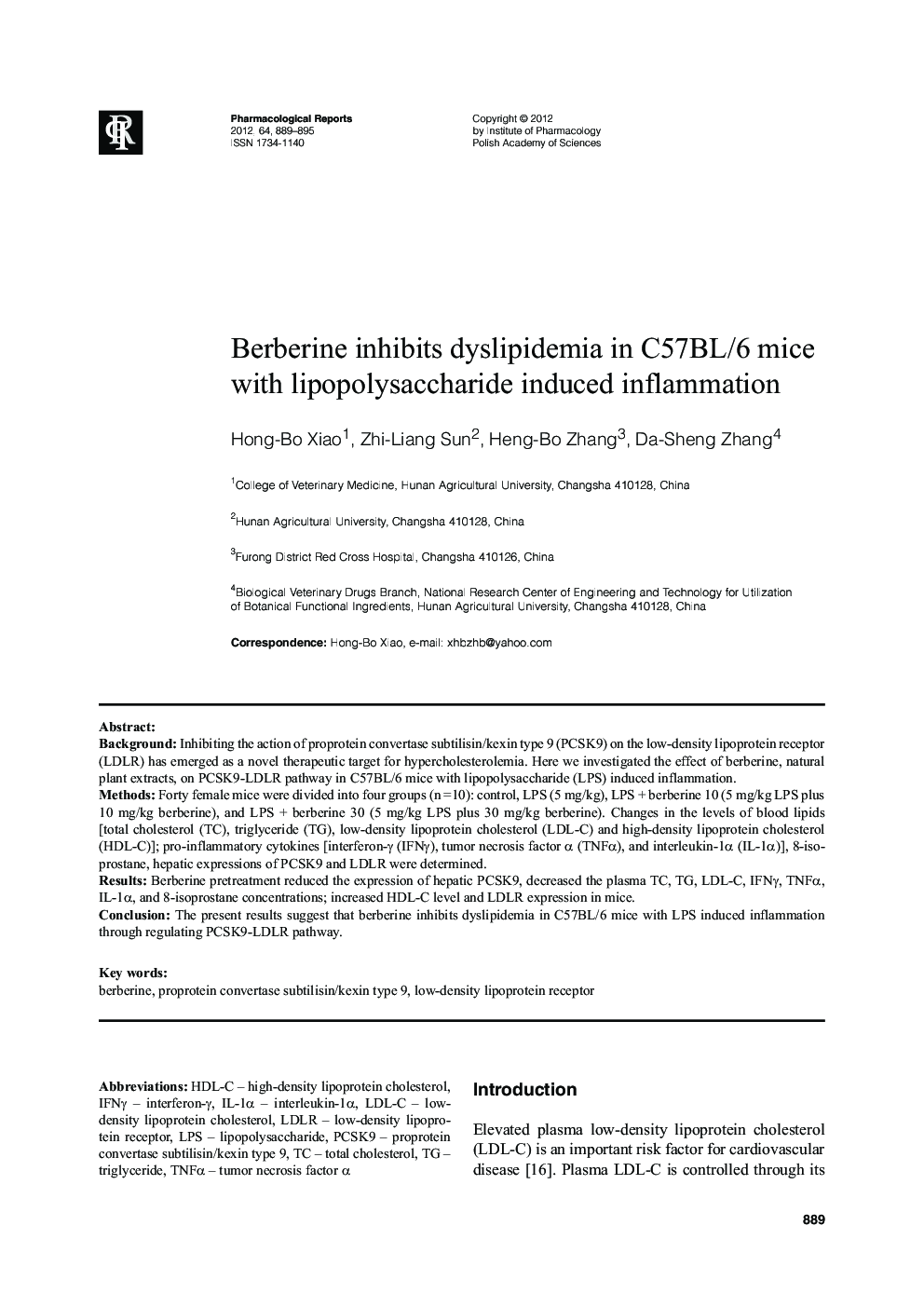| Article ID | Journal | Published Year | Pages | File Type |
|---|---|---|---|---|
| 2011817 | Pharmacological Reports | 2012 | 7 Pages |
BackgroundInhibiting the action of proprotein convertase subtilisin/kexin type 9 (PCSK9) on the low-density lipoprotein receptor (LDLR) has emerged as a novel therapeutic target for hypercholesterolemia. Here we investigated the effect of berberine, natural plant extracts, on PCSK9-LDLR pathway in C57BL/6 mice with lipopolysaccharide (LPS) induced inflammation.MethodsForty female mice were divided into four groups (n = 10): control, LPS (5 mg/kg), LPS + berberine 10 (5 mg/kg LPS plus 10 mg/kg berberine), and LPS + berberine 30 (5 mg/kg LPS plus 30 mg/kg berberine). Changes in the levels of blood lipids [total cholesterol (TC), triglyceride (TG), low-density lipoprotein cholesterol (LDL-C) and high-density lipoprotein cholesterol (HDL-C)]; pro-inflammatory cytokines [interferon-γ (IFNγ), tumor necrosis factor α (TNFα), and interleukin-1α (IL-1α)], 8-isoprostane, hepatic expressions of PCSK9 and LDLR were determined.ResultsBerberine pretreatment reduced the expression of hepatic PCSK9, decreased the plasma TC, TG, LDL-C, IFNγ, TNFα, IL-1α, and 8-isoprostane concentrations; increased HDL-C level and LDLR expression in mice.ConclusionThe present results suggest that berberine inhibits dyslipidemia in C57BL/6 mice with LPS induced inflammation through regulating PCSK9-LDLR pathway.
